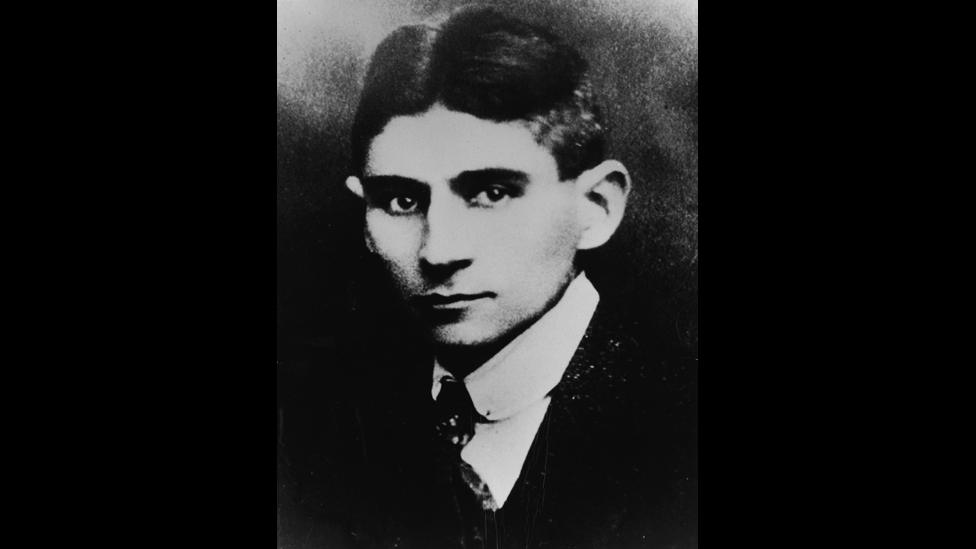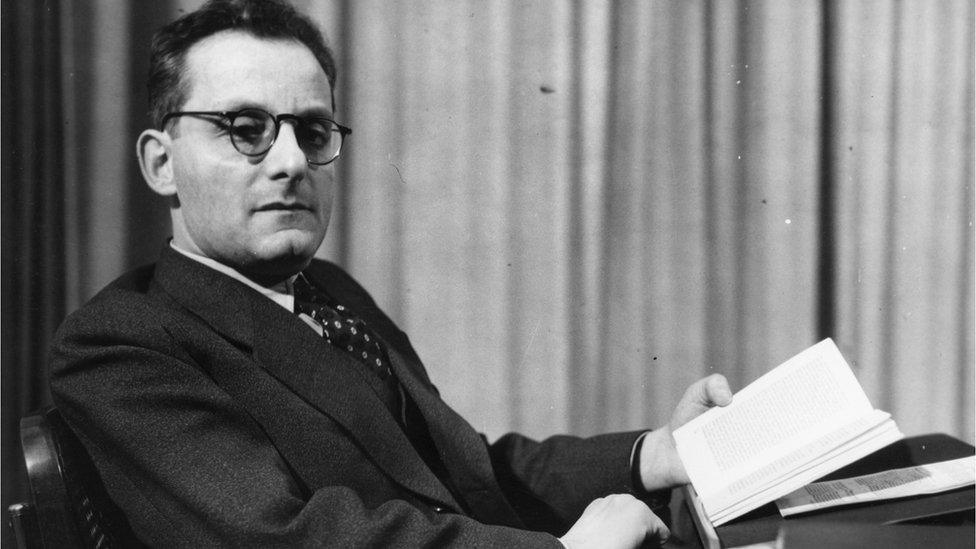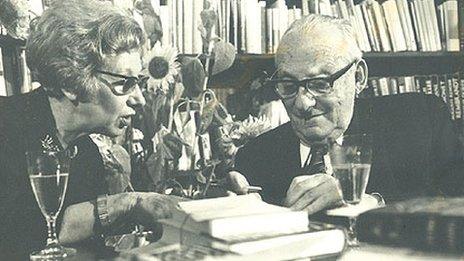Franz Kafka: Israeli library wins legal battle over unpublished papers
- Published

Franz Kafka died of tuberculosis at the age of 41 in 1924 and was buried in Prague
Israel's Supreme Court has ruled that a collection of unpublished Franz Kafka manuscripts must be transferred from an Israeli family to the country's national library.
The ruling ends an eight-year legal battle over the documents.
The manuscripts were in the possession of the family of Esther Hoffe, the secretary of Kafka's friend Max Brod.
The family had argued that it rightfully owned the manuscripts after her death.
David Blumberg, chairman the National Library of Israel, said the ruling was "a celebratory day for any person of culture, in Israel and abroad".
He said: "The Supreme Court asked the National Library to do its utmost to reveal Brod's estate to the public. The National Library will follow the court's ruling and will preserve the cultural assets by keeping them in the country as well as making them accessible to the general public."

Max Brod was a friend, biographer and editor of Franz Kafka
Before Kafka died of tuberculosis at the age of 41 in 1924, he left instructions that his works should be burned. But Brod ignored his request and published some of them.
Those works included The Trial, Metamorphosis and The Castle, which helped turn Kafka into one of the 20th Century's most famous novelists.
Brod smuggled Kafka's writings out of his home city of Prague in 1939, saving them from the Nazis. Brod died in 1968 and bequeathed his collection to his secretary Esther Hoffe.
She had kept the collection in her Tel Aviv apartment as well as in safety deposit boxes in Israel and Switzerland.
The legal battle over who rightfully owned them started after she died in 2007.
'Many other treasures'
Some of the deposit boxes were opened at in Zurich in 2010, but their contents were only revealed to an Israeli judge.
In 2012, a Tel Aviv family court ruled that Brod had explicitly ordered Hoffe to catalogue and transfer his collection "to the library of the Hebrew University in Jerusalem or the Tel Aviv municipal library, or any other public institution in Israel or abroad". The Supreme Court has now agreed with this ruling.
A statement on The National Library website said the materials that the National Library will receive include "correspondences in Kafka's handwriting to Max Brod, Kafka's Paris journals, drawings, and many of Max Brod's works and the letters to Kafka".
"It is fair to assume that many other treasures are hidden among Max Brod's personal material which will be exposed and catalogued by the National Library.
"As time goes by they will be made accessible in the broadest way for generations to come."
- Published14 October 2012
